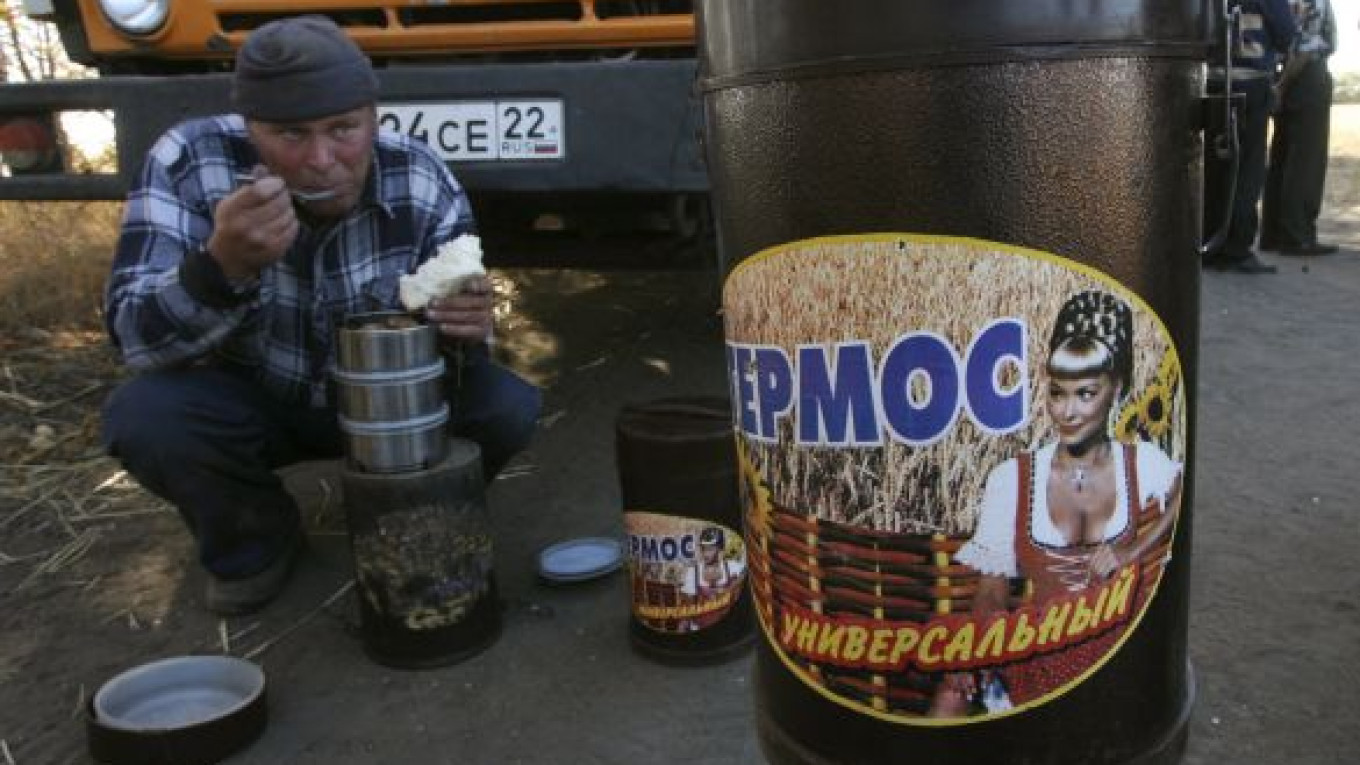ROME — Delegates at a special UN meeting about high food prices Friday blamed the hikes on speculation, futures markets and national responses to crop failure, but did not blame Russia for its export ban after a drought-caused wheat shortfall.
Russia, one of the world's largest wheat exporters, initiated the ban earlier this year to protect domestic markets. Experts from more than 75 countries discussed the ban and its impact on cereal markets.
UN officials, citing the latest crop assessments, sought to reassure governments that good harvests should help buffer countries from the violence sparked by price panics of a few years ago.
Participants at the talks agreed that "while there were no grounds for complacency, there was no indication of an impending world food crisis," said the Food and Agriculture Organization, the Rome-based UN agency that hosted the talks.
A UN report released during the meeting found that while grain prices have surged in part because of the ban, the outlook for this year's harvests is good and cereal stocks are adequate. Russian grain company executives and government officials were among meeting participants.
Riots recently erupted in Mozambique over high food prices, prompting fears that a crisis, like the one of 2007-08, which sparked riots in several impoverished countries, was possible. But UN officials have stressed that the current situation is not as bad as before. "What we have seen over the past few weeks is a period of volatility driven partly by the announcement from Russia of an export ban on grain food until next year, and this has driven prices up," said Gregory Barrow, of the UN World Food Program.
Sergei Sukhov, from Russia's Agriculture Ministry, said the market for grains "should be stable and predictable for all participants."
The FAO's latest assessment of grains and rice concluded that this year's cereal production, bolstered by stock from last season, should cover the world's projected needs for this year and next. International wheat prices kept rising last month even though cereal production for this year is expected to be the third largest ever, and the global harvest was only 1 percent less than last year's, the report said.
Meeting participants concluded that "national policy responses" and speculation, not "global market fundamentals," were the main factors for the escalating prices and volatility following "unexpected crop failure in some major exporting countries." They said root causes of the volatility included "growing linkage with outside markets, in particular the 'financialization' on future markets."
Except for North Africa, Africa in general was expected to have favorable harvest. China and India are anticipating record crops, although much of that harvest will go to feed those countries' populations. Also helping to boost the wheat supply are good production prospects for Australia. The FAO said the latest forecast for world cereal stocks in 2011 has been revised upward to nearly 184 million tons, 3 million tons more than previously anticipated, but still down 9 percent from their eight-year high opening level.
The Ukrainian government said Friday that it would not restrict grain exports, Reuters reported. Traders have complained that Ukraine, one of the world's top grain exporters, was curbing wheat exports through lengthy customs checks since July in expectation of a poor harvest after a summer drought.
A Message from The Moscow Times:
Dear readers,
We are facing unprecedented challenges. Russia's Prosecutor General's Office has designated The Moscow Times as an "undesirable" organization, criminalizing our work and putting our staff at risk of prosecution. This follows our earlier unjust labeling as a "foreign agent."
These actions are direct attempts to silence independent journalism in Russia. The authorities claim our work "discredits the decisions of the Russian leadership." We see things differently: we strive to provide accurate, unbiased reporting on Russia.
We, the journalists of The Moscow Times, refuse to be silenced. But to continue our work, we need your help.
Your support, no matter how small, makes a world of difference. If you can, please support us monthly starting from just $2. It's quick to set up, and every contribution makes a significant impact.
By supporting The Moscow Times, you're defending open, independent journalism in the face of repression. Thank you for standing with us.
Remind me later.


